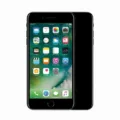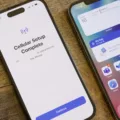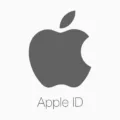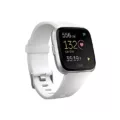It’s no secret that iPhones are popular targets for viruses and malware. In fact, a recent study found that iPhones were more likely to be infected with ransomware than any other type of mobile device.
This is largely because iPhones are expensive devices and are therefore seen as a valuable target by cybercriminals. Addtionally, the iOS operating system is closed off, making it more difficult for security researchers to find and patch vulnerabilities. However, this doesn’t mean that iPhones are completely immune to attack. There have been a number of high-profile cases of iPhone malware in recent years.
There are a few ways to determine if your iPhone has a virus. One is to look for unusual or unexpected behavior, such as apps crashing or freezing, your device suddenly turning off, or unusual messages or notifications popping up. Another way to tell is if your phone is running slowly than usual, or if its battery life seems shorter than normal. You can also use an antivirus app to scan your device for viruses. If you suspect that your iPhone has a virus, you should back up your data and then factory reset your device.
Can IPhone Get Viruses From Websites?
Yes, iPhone can get viruses from websites. However, the odds of picking one up are low, as Apple’s smartphones use a more secure operating system than Android devices. Nevertheless, it’s important to remember that no device is 100% protected against viruses, so it’s always best to be cautious when browsing the web.
How Do I Get Rid Of A Virus On My IPhone?
There are a few ways that you can get rid of a virus on your iPhone. The first way is to open the Settings app and select Safari. Select Clear History and Website Data. Tap Clear History and Data. This should get rid of any malware on your iPhone.
The second way is to open the Settings app and select General. Select Reset. Tap Reset Network Settings and then tap Reset Home Screen Layout. This will reset your phone and get rid of any malware that may be on it.
The third way is to use a virus removal app. There are several virus removal apps available in the App Store, such as Malwarebytes for iOS. These apps can scan your phone for malware and remove it.

Does My Phone Have A Virus?
There are a few things to consider when answering this question. The first is that there is no one specific type of virus that affects mobile devices, such as smartphones and tablets. Instead, there are a variety of different malware threats that can target these devices. Some of these threats may be similar to PC viruses, while others may be completely unique to mobile platforms.
Another thing to keep in mind is that the risk of infection varies depending on the operating system used by your phone. For example, Android devices are more susceptible to malware infections than iOS devices, due to the fact that Android is an open platform and iOS is not. However, it is stll important to be aware of the various malware threats that exist and take precautions to protect your device from them.
If you’re concerned that your phone may be infected with a virus, there are a few things you can do to check. One is to run an antivirus scan on your device using a trusted app such as Avast! Mobile Security & Antivirus or Malwarebytes Anti-Malware for Android. You can also check your phone’s settings to see if there are any suspicious apps installed, and if so, you can uninstall them. Finally, it’s always a good idea to be cautious about what apps you download and where you download them from.
Is My IPhone Hacked Test?
There is no known way of remotely hacking an iPhone, and the only way to track it, would be to log in to your Apple ID on some oher device and use the Find My app. You can check in Settings->Account (top of settings), what devices your Apple ID is logged in to.
Can An IPhone Be Hacked?
An iPhone can be hacked remotely through iOS vulnerabilities, but it’s more likely that it’ll be hacked through malicious software or physical access. Programming-based hacking is the most difficult to carry out and therefore, less common.
How Do I Check For Malware On My IPhone?
There are a few ways that you can check to see if your iPhone may be infected with malware. One way is to check your data usage; if you’re seeing a lot of data being used that you don’t recognize, it could be a sign that you have malware. Another way to check is to see which apps are using up the most battery; if thre are apps that you don’t remember installing and they’re using up a lot of battery life, that could be a sign of malware. You can also check for strange app icons, and if you’re seeing a lot of pop-ups, that could be another sign of malware. Finally, you can run a malware scan on your iPhone.
Can IPhones Get Viruses 2021?
Yes, iPhones can get viruses. However, they are much less likely to get viruses than Android phones. One of the ways that iPhones can become vulnerable to viruses is if they are jailbroken. Jailbreaking an iPhone allows you to install apps from sources other than the App Store, which can increase the risk of malware infection.
Can An IPhone Get A Virus From Safari?
No, iPhones cannot get a virus from Safari. However, Safari can be a gateway for hackers to load malware or other bloatware onto your device. You should also think about whih apps you’ve recently downloaded and whether they are reputable.
How Do I Scan My Phone For Viruses?
There are a few ways that you can scan your phone for viruses. The firt way is to go to Settings and tap on Battery and Device Care. Tap on Device Protection and then tap on Scan Phone. This will scan all of the apps and data on your device for viruses. The second way is to use an antivirus app. There are many antivirus apps that you can download from the Google Play Store. Once you have downloaded an antivirus app, open it and scan your device for viruses.








